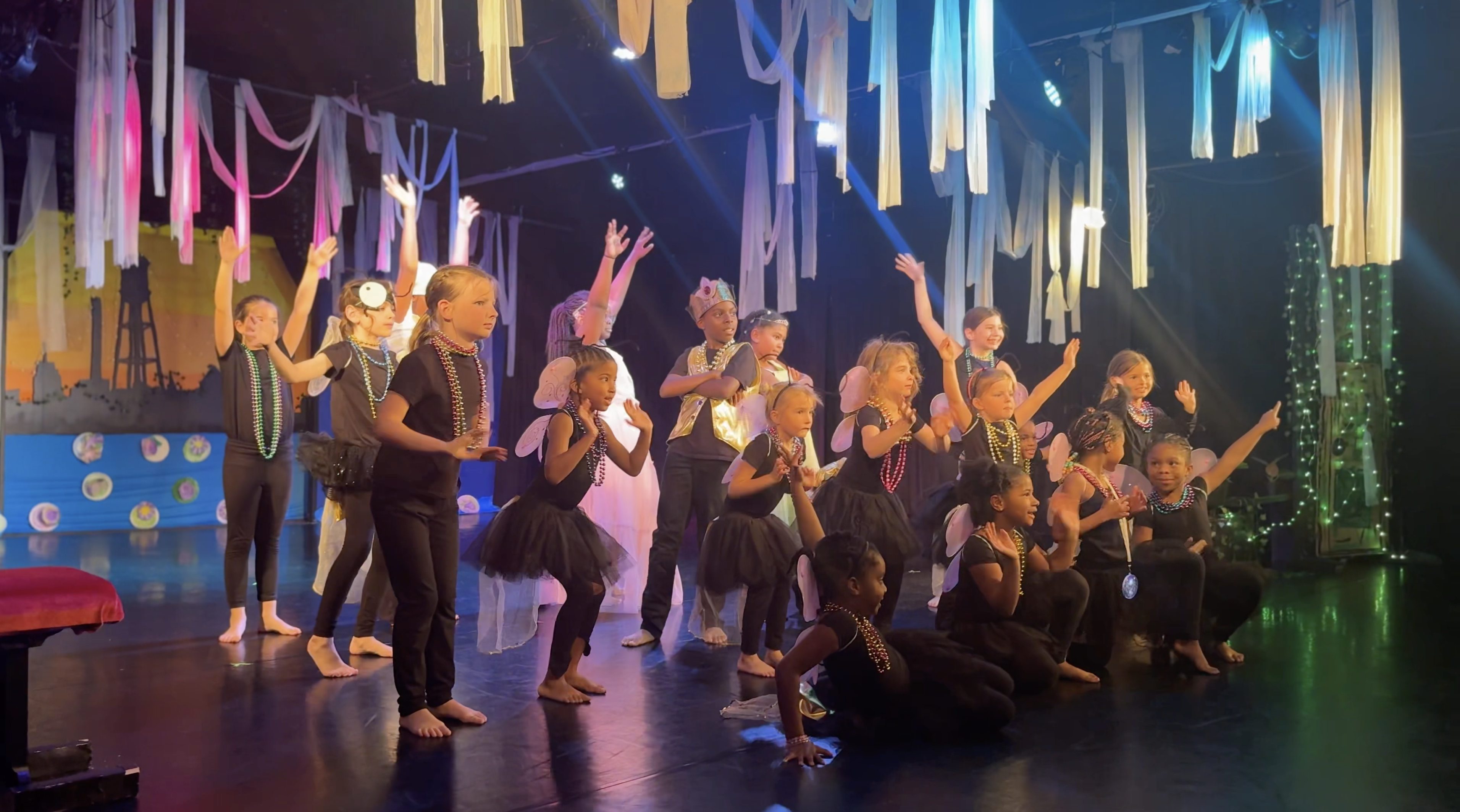How does a neighborhood theater cultivate world-class, internationally recognized performers, nurture tomorrow’s leaders, and uplift an entire community—all while staying true to its roots? Walltown Children’s Theatre (WCT) seems to have cracked the code, offering exemplary performing arts instruction and youth development to people from all socioeconomic backgrounds, regardless of their ability to pay. WCT is celebrating its 25th anniversary all year long, with special performances and a gala at Carolina Theater on October 18.
The journey starts early: at Walltown, children as young as three learn dance, drama, music and musical theater. WCT also offers a behind-the-scenes curriculum exploring stage management, sound, lighting, costuming and set design. It boasts two “pre-professional” groups to launch careers in the performing arts. Its dance company serves as a springboard for students to participate in regional, national and international competitions and workshops.
In these ways, the theater is carrying forward the legacy of its namesake community, a hub of civil rights history and activism in Durham. Walltown is named for George Wall, a formerly enslaved man who was among the first to buy property in the neighborhood, building a house in 1906. In the 1940s and 50s, Walltown was the nerve center of voting rights activism and desegregation efforts in Durham.
Like many historically Black neighborhoods, Walltown weathered strategic disinvestment and systemic neglect in the 1970s, followed by waves of gentrification near the turn of the century, due to its proximity to downtown Durham and Duke University. The community rallied, launching a large-scale property improvement and affordable housing initiative to prevent families from being pushed out of their homes. In October 2000 Joseph and Cynthia Henderson opened Walltown Children's Theatre, offering both arts instruction and after-school programming to connect young people with their community. In its 25 years, the theater has been a major contributor to the successful revitalization of the Walltown neighborhood.
WCT falls under MDBF’s new grantmaking approach, which aims to be more accessible, reducing red tape and helping organizations be more effective and innovative. MDBF hopes to foster creativity, innovation and learning in the Triangle with meaningful collaboration and reliable, flexible general operating resources. Its goals include helping nonprofit arts education organizations like WCT build momentum, stay curious and creative, and shape Triangle communities into being the best places to live, work, learn and play.
Walltown Children’s Theatre exemplifies the power of performing arts to transform entire communities. Visit its website to explore the full slate of silver anniversary celebrations—and witness firsthand how art doesn’t just imitate life, but can transform it.

